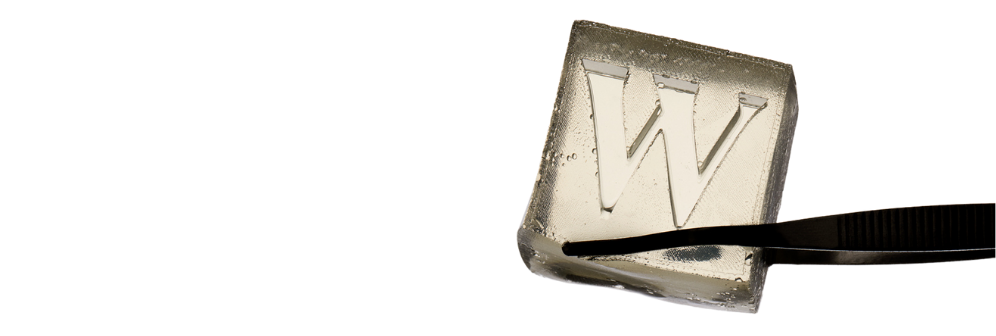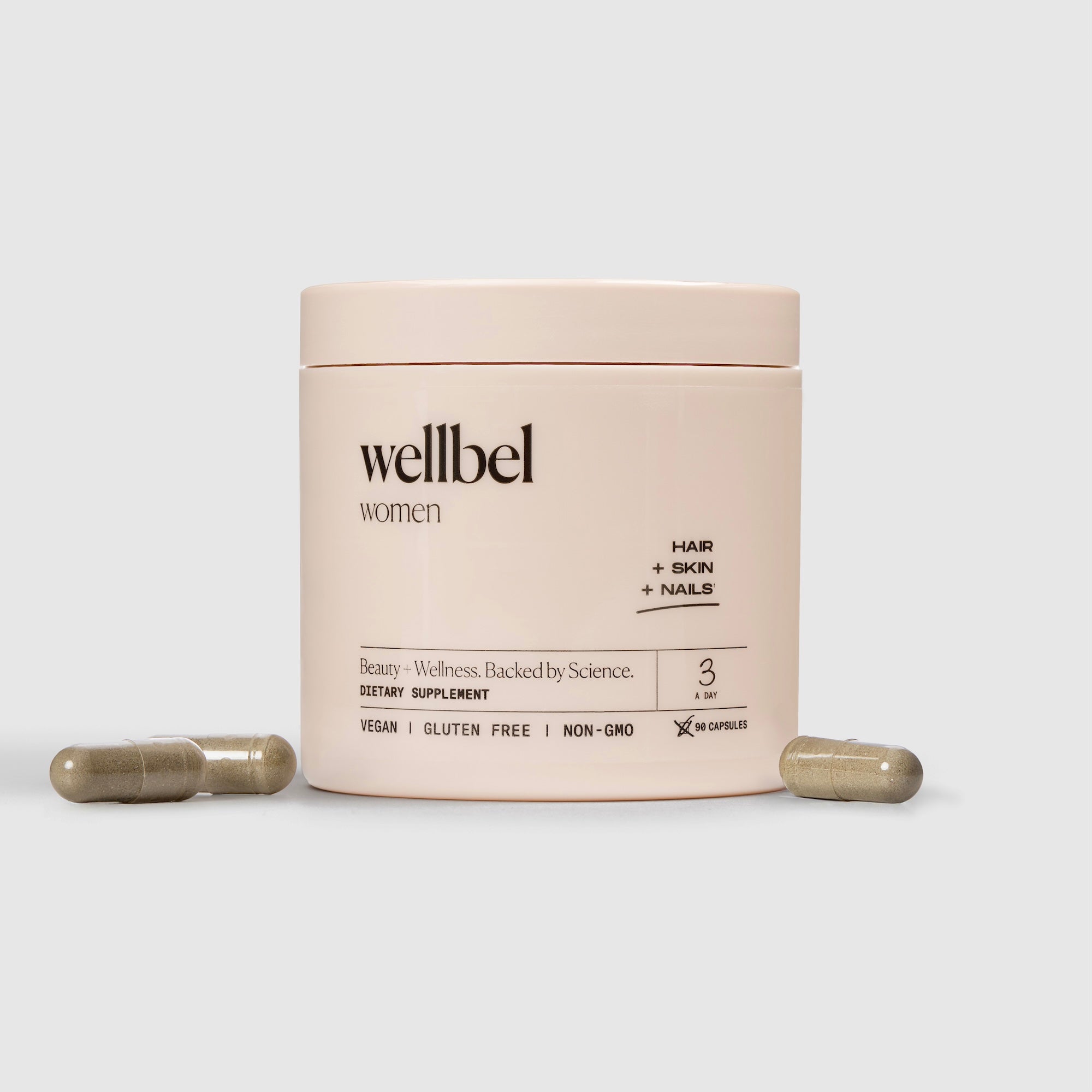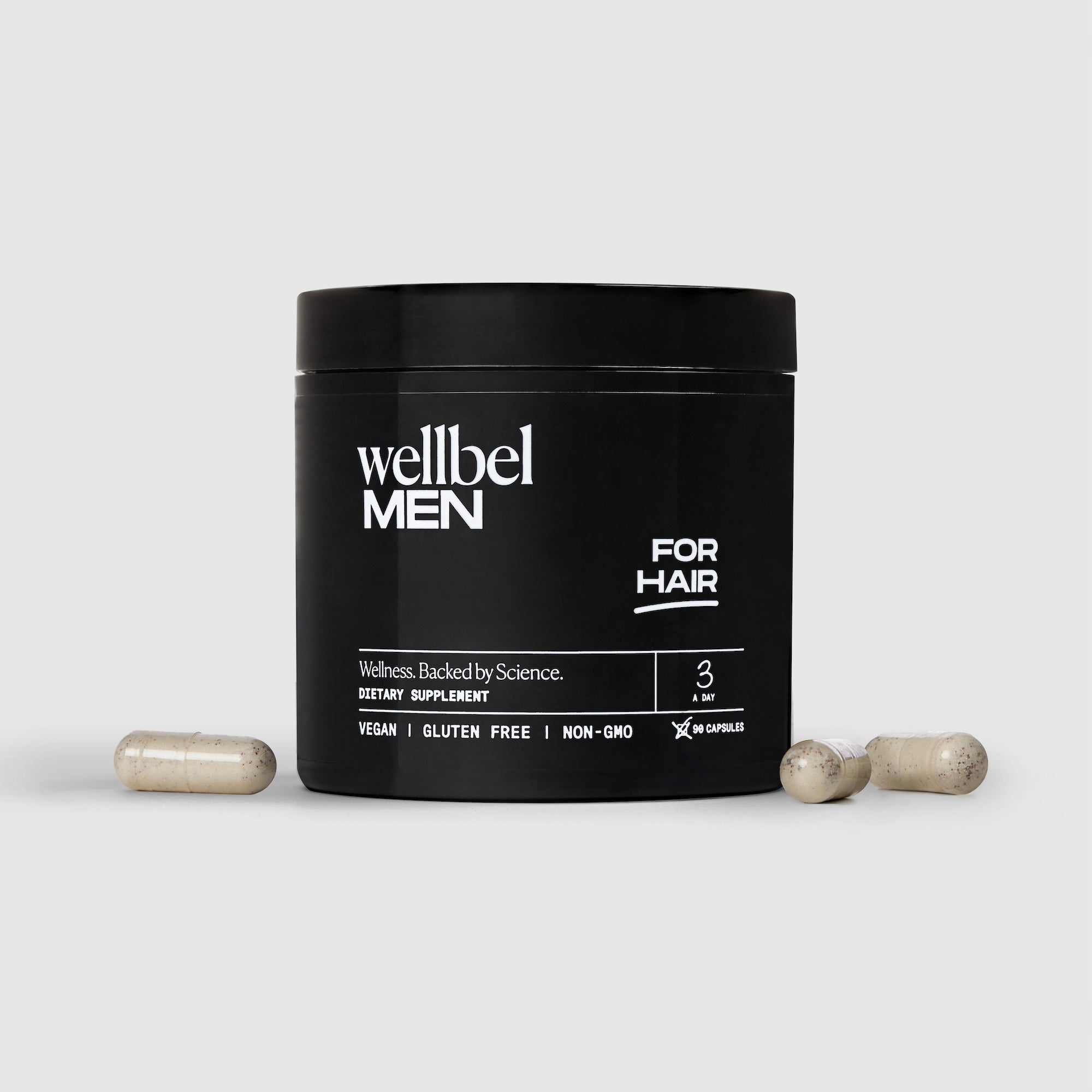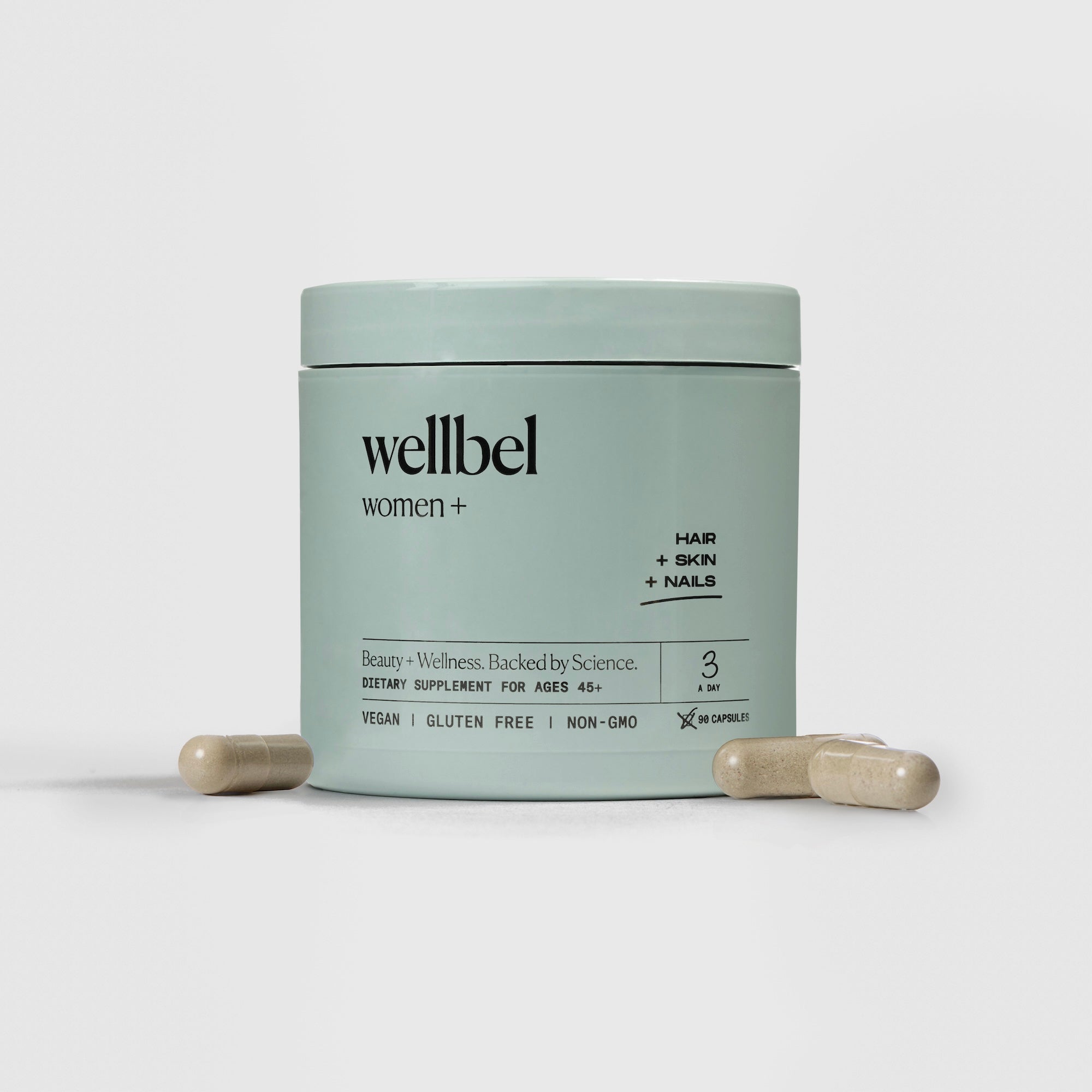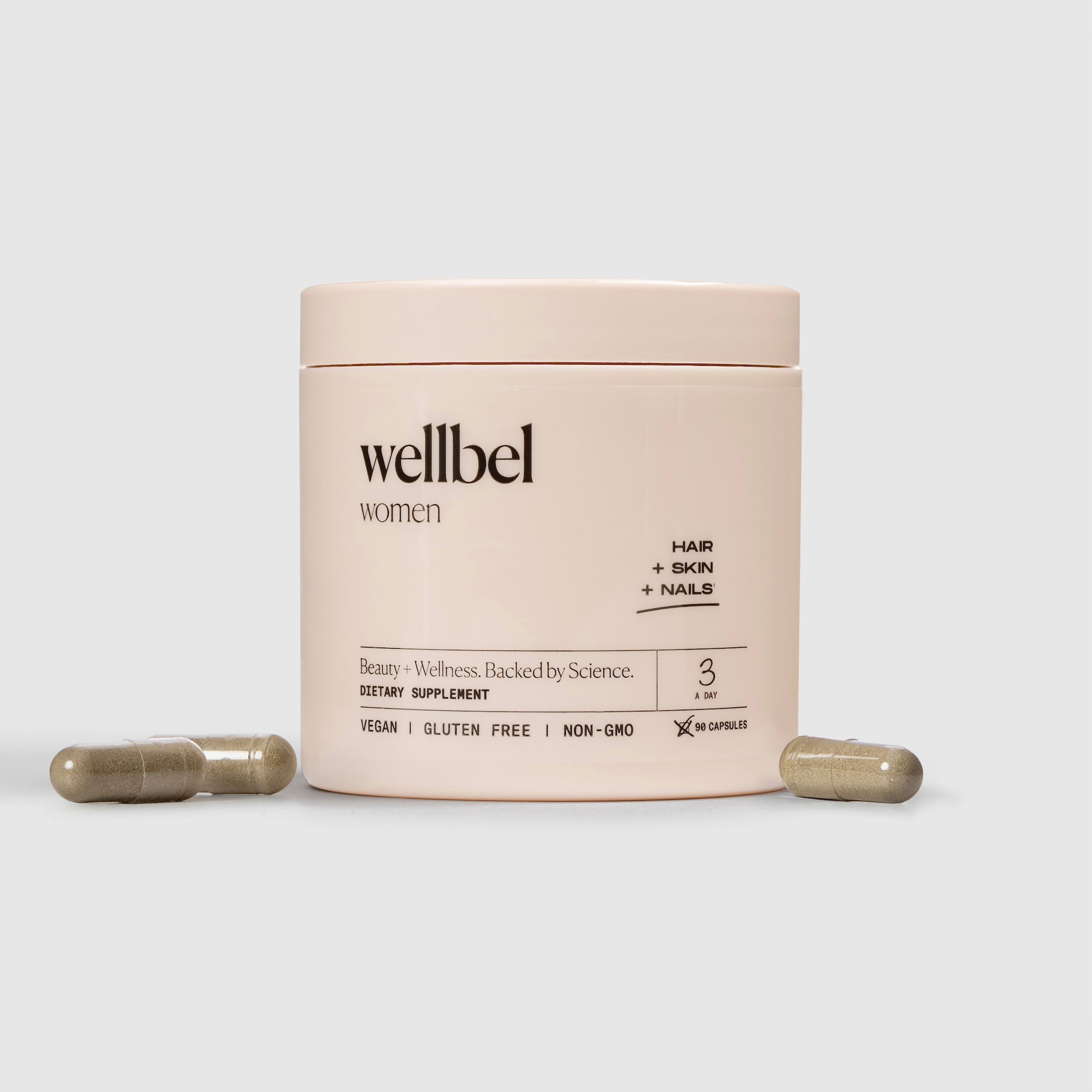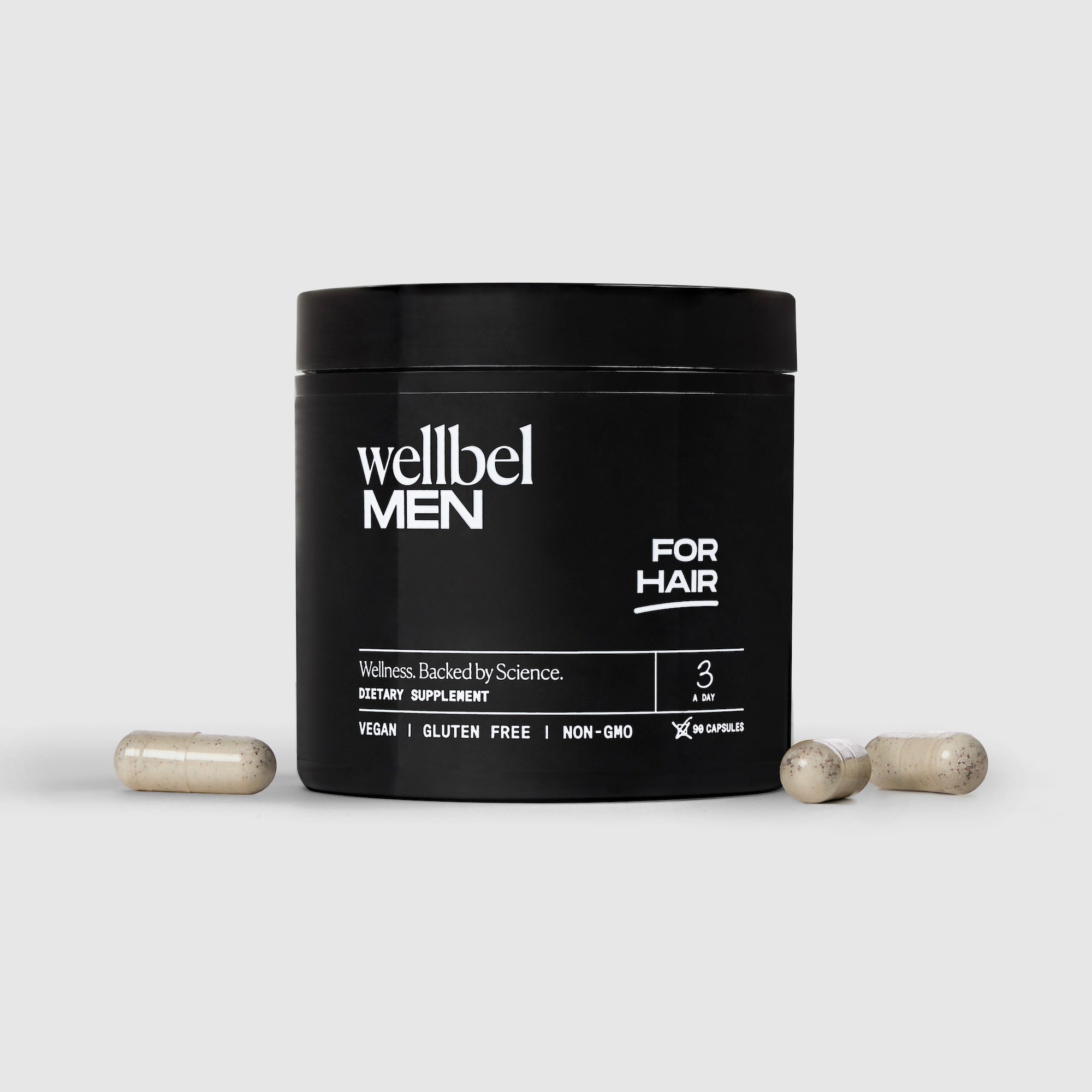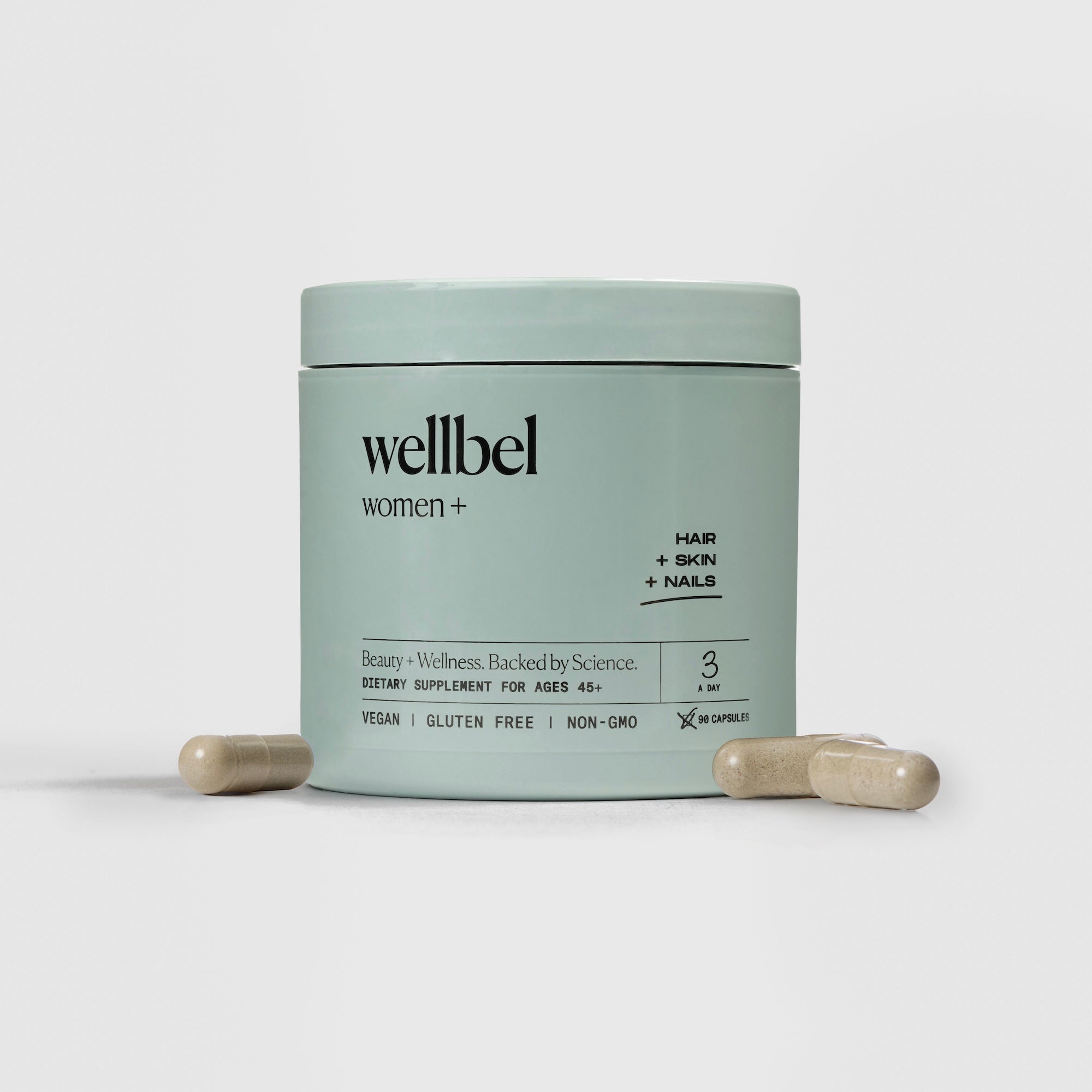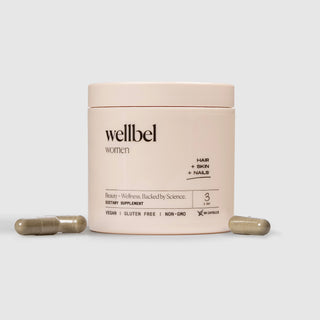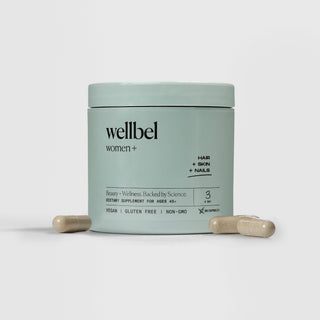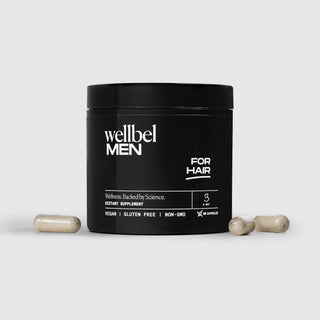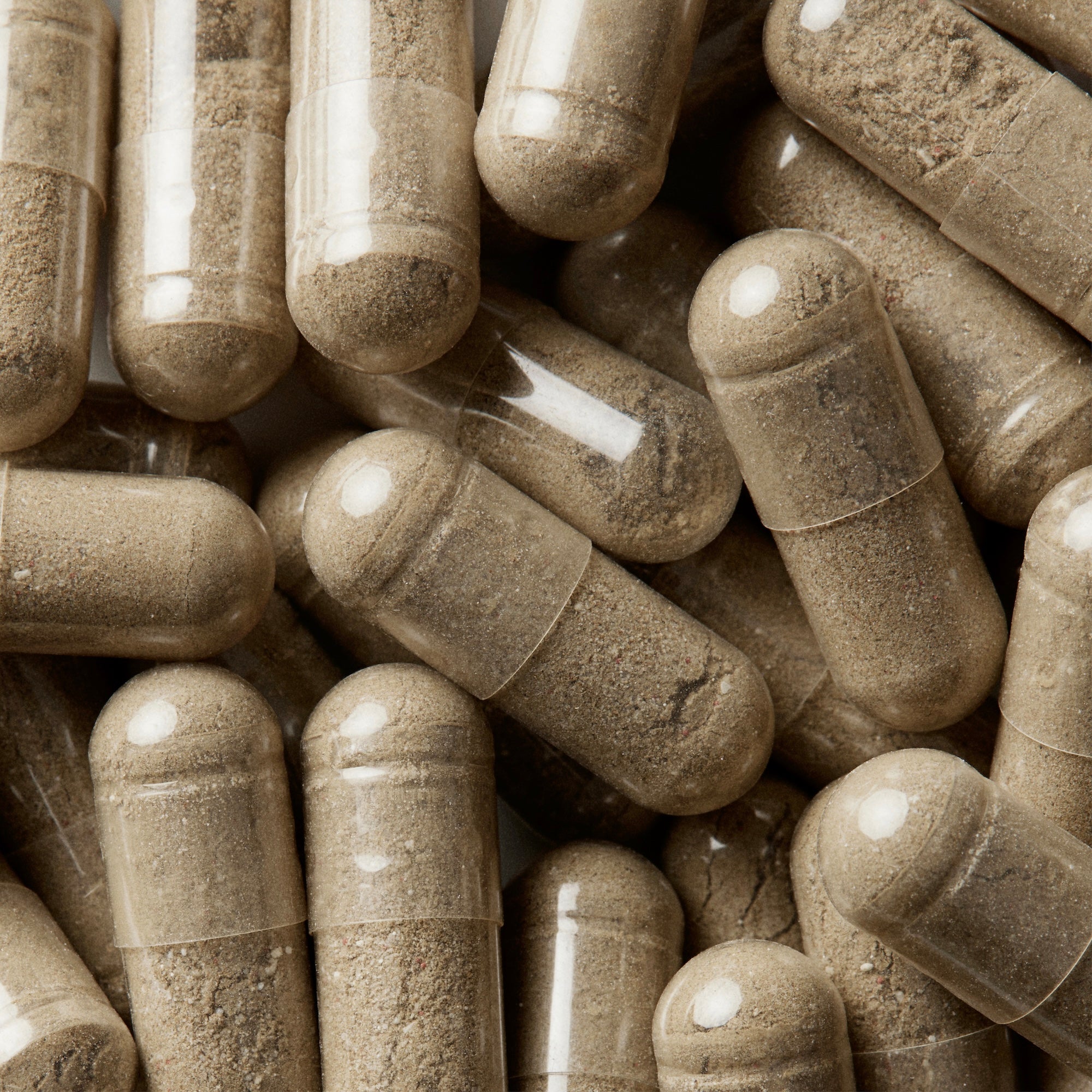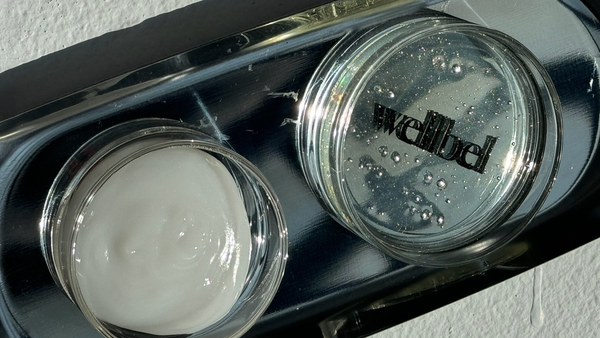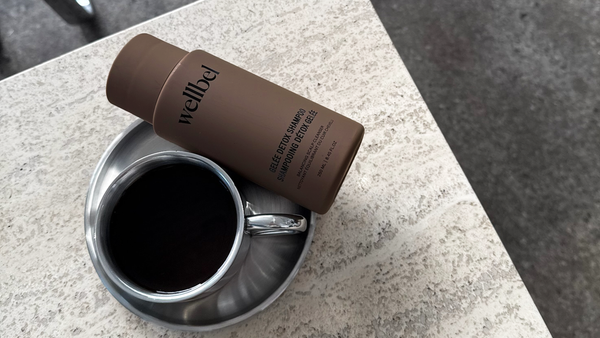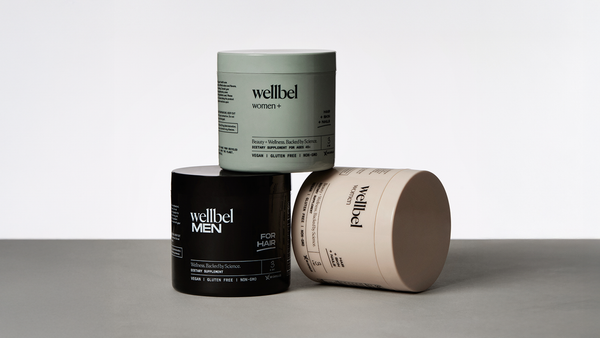Biotin, also known as vitamin B7, is a vital nutrient for overall health and well-being.
Biotin is a water-soluble vitamin that converts food into energy and promotes overall health, including hair, skin, and nail health.
Due to these various biotin benefits, it's one of the crucial ingredients in our Wellbel Women’s Formula and our Wellbel Men’s Formula.
This article will explore the health benefits of biotin and how you can add more of this important vitamin to your diet.
Biotin Overview:
Biotin is a water-soluble vitamin, which means it belongs to a group of vitamins that dissolve in water and are carried to the body's tissues. Unlike fat-soluble vitamins, water-soluble vitamins are not stored in the body and must be replenished daily to ensure optimal bodily function.
Vitamin B7 is used by the body to help metabolize carbohydrates, fats, and amino acids. This is important for pregnancy. When you're pregnant, biotin helps convert the foods you consume into energy for you and your growing baby. Research has found a correlation between low biotin levels and those who experience issues during pregnancy.
Biotin is also beneficial from a cosmetic perspective. It’s thought to support keratin production, an important protein that is used to create healthy hair, skin, and nails. In fact, this vitamin is often called “Vitamin H”, which references its benefits for hair.
Biotin deficiency has been tied to hair loss, brittle nails, skin rashes, and more. That’s why health experts recommend getting an optimal amount of biotin each day.
It’s recommended that adults get 30 mcg per day, though the recommended dose is 35 mcg daily for women who are nursing.
Rich food sources of biotin include:
- Eggs (one cooked egg provides 10 mcg of biotin)
- Legumes (peanuts, soybeans, etc..)
- Nuts and seeds (sunflower, almonds, etc..)
Potential Health Benefits of Biotin:
Below is a review of the various health benefits of biotin.
1. Hair Health
Biotin is thought to be one of the most important vitamins for hair health.
Vitamin B7 is said to support hair health through its role in keratin production. As a reminder, keratin is a protein that helps form the structure of hair.
Biotin deficiency has been linked with hair loss (i.e. alopecia). This is why it’s so important to maintain adequate levels of biotin via eating biotin-rich foods or by taking a biotin supplement.
A placebo-controlled clinical study involving women with thinning hair discovered that taking a multi-ingredient supplement (containing biotin) helped to improve hair health. Over the course of 6 months, the women who took the supplement reported an increase in overall hair volume, scalp coverage, and thickness. Meanwhile, no significant changes were seen in the placebo group.
However, it should be noted that the hair growth supplement contained multiple ingredients — including zinc and iron, which are also necessary for hair growth.
While taking extra daily biotin hasn’t been conclusively linked with improved hair health, maintaining normal biotin levels is important for healthy hair.
2. Nail Health
If you struggle with brittle nails, biotin may help.
A small study involving 44 individuals found that taking 2.5mg of biotin daily helped to increase nail thickness by 25%.
Another study found that taking biotin daily helped to improve nail hardness and thickness. It also helped to reduce instances of nail splitting. The study participants also noted that their nails had a more uniform appearance after taking biotin supplements.
One other study found that biotin helped to reduce nail brittleness and improved overall nail health.
If you’re looking to strengthen your nails, consider adding biotin to your routine.
3. Skin Health
Biotin is also thought to help with maintaining healthy skin.
Biotin deficiency has been tied to various skin conditions, including a scaly, red rash on facial skin.
In particular, in deficient children, taking extra biotin has been shown to reduce instances of eczema.
It’s thought that biotin benefits skin health through its ability to help with fatty acid production, which helps to nourish the skin and helps oil glands function properly.
If you’re looking to support overall skin health, consider looking into taking a biotin supplement.
How Much Biotin Should I Take?
The National Institute of Health recommends 30 mcg per day of biotin for adults as a baseline.
However, more can be taken without harm (remember it’s a water-soluble vitamin, so any excess biotin will be flushed away).
The typical biotin dose that has been used in clinical trials is 2.5mg per day.
How To Add Biotin To Your Diet:
Based on the various benefits of biotin listed above, adding vitamin B7 to your diet is an easy decision - especially if you're looking to strengthen your overall health and vitality.
The easiest way to add this important vitamin to your diet is to take a daily biotin supplement.
At Wellbel, we include biotin in our Wellbel Women’s Formula and our Wellbel Men’s Formula. We include 500 mcg per serving, which gives your body an ample amount of this key vitamin in 1 daily serving.
In addition to biotin, our supplements also contain other key ingredients that help to support overall health and wellness, including vitamin A, vitamin D, folate, vitamin B12, and more.
You can shop our formulas here.
You can also get vitamin B7 via diet. As previously noted, biotin is found in various foods, including eggs, organ meats, seeds, nuts, and certain vegetables (including sweet potatoes).
Conclusion:
Biotin is an important nutrient that benefits the body in a variety of different ways.
Research shows that it may provide many different health benefits, especially for nail, skin, and hair health.
If you are looking for natural support in any of these areas, vitamin B7 is worth considering.
Here at Wellbel, we include biotin in our Wellbel Women’s Formula and our Wellbel Men’s Formula. This daily beauty formula is designed to provide your body with the nutrients it needs for healthy hair, skin, and nails.
Have you tried biotin before? What's your favorite way to include this key vitamin in your diet?
